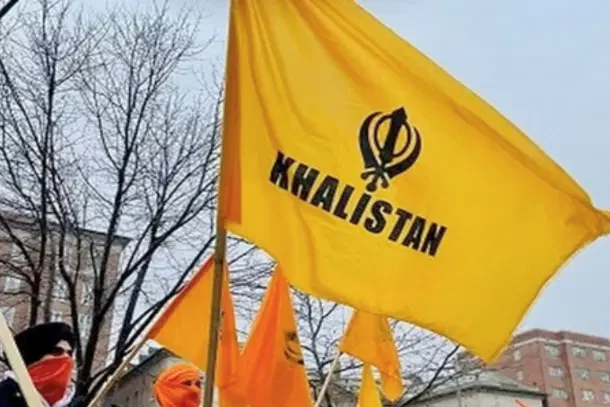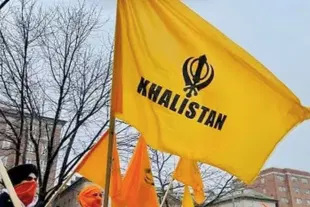News Brief
Major Crackdown On Digital Terrorism: India Blocks 10,500 Pro-Khalistan URLs In Past Three Years Under IT Act
Vansh Gupta
Dec 02, 2024, 03:26 PM | Updated 03:26 PM IST
Save & read from anywhere!
Bookmark stories for easy access on any device or the Swarajya app.


The Indian government has intensified its digital security measures, blocking around 10,500 URLs associated with pro-Khalistan referendums on social media over the past three years.
These actions, carried out under Section 69A of the Information Technology Act (IT) 2000 were aimed at curbing the spread of separatist ideologies and safeguarding national integrity.
The data was recently reviewed in a meeting between the Ministry of Electronics and Information Technology (MEITy) and senior officials of the Ministry of Home Affairs (MHA).
The Ministry revealed, “Since 2021, around 10,500 URLs related to the Khalistan referendum have been blocked under Section 69(A) of the IT Act. Additionally, many mobile apps launched for spreading the Khalistan referendum were blocked by the department concerned. Around 2,100 URLs related to the Popular Front of India (PFI) were also blocked under the same provisions.”
Alongside, accounts linked to radicalisation efforts by groups like LTTE, Jammu and Kashmir militants, and Waris Punjab De (WPD) were targeted for removal.
Over the last three years, a total of 28,079 URLs have been blocked across various platforms. Facebook accounted for the largest share with 10,976 URLs blocked, followed by X (formerly Twitter) with 10,139.
Notably, a significant portion of the Facebook URLs were linked to fraudulent schemes, redirecting users to third-party websites or apps promoting fake trading, investments, and work-from-home scams.
On a platform-wise breakdown:
Facebook: 1,743 URLs blocked in 2022, 6,074 in 2023, and 3,159 in 2024 (up to September).
X (formerly Twitter): 3,417 blocked in 2022, 3,772 in 2023, and 2,950 in 2024.
YouTube: 2,211 blocked overall, with 809 in 2022, 862 in 2023, and 540 in 2024.
Instagram: 2,198 URLs blocked, showing a rising trend from 355 in 2022 to 1,029 in 2024.
WhatsApp: A total of 138 accounts blocked, including 66 in 2022 and 56 in 2024.
Telegram: 225 URLs were blocked over three years.
According to officials, “The URLs were blocked based on the recommendations of the MHA, which had received inputs or evidence from central intelligence agencies that some of the sites and apps allegedly contained ‘material prejudicial to the sovereignty and integrity of India.”
In terms of timeline, 6,775 accounts were blocked in 2022, 12,483 in 2023, and 8,821 in 2024 (up to September). Most of the flagged content originated from social media platforms, with Facebook and X being the most affected.
The government’s actions are supported by Section 69A of the IT Act, confers on the Central and State governments the power to issue directions “to intercept, monitor or decrypt any information generated, transmitted, received or stored in any computer resource”.
This provision applies to various online intermediaries, including Internet Service Providers (ISPs), telecom service providers, and web hosting services.
By blocking harmful URLs and apps, the Centre is addressing the growing misuse of digital platforms for spreading divisive propaganda, fraud, and radicalization, ensuring the safety and security of India’s digital ecosystem.
Vansh Gupta is an Editorial Associate at Swarajya.





